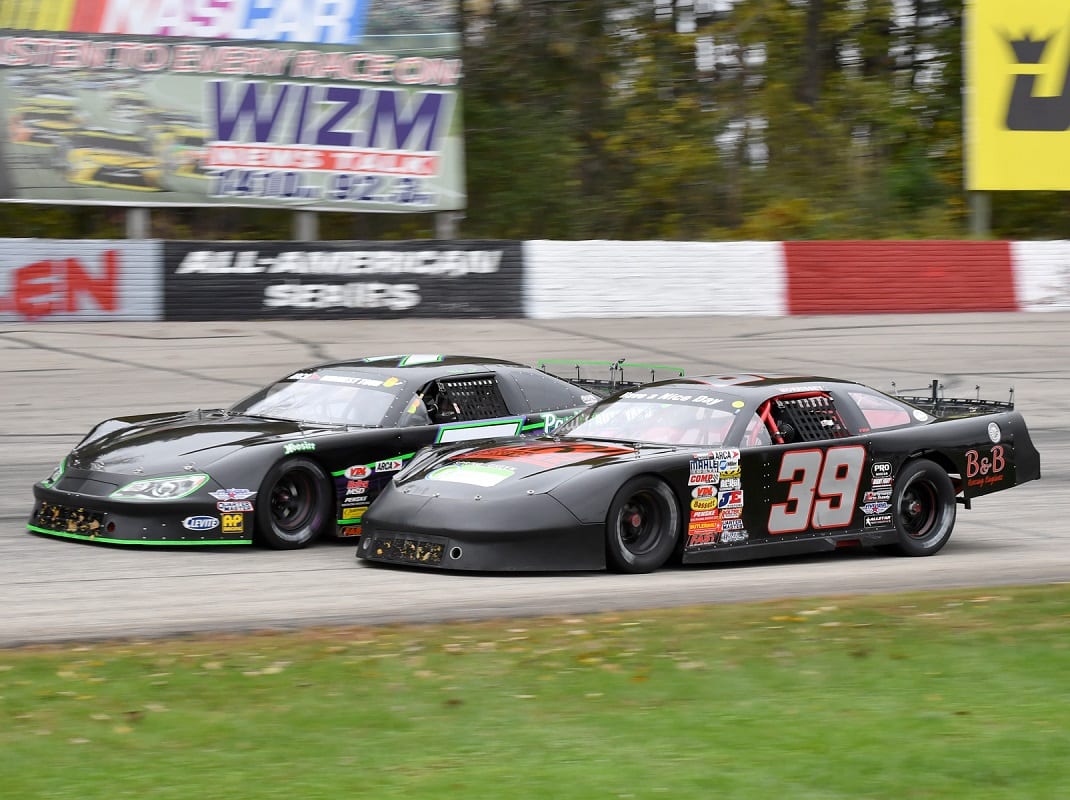Race fans from across the country will gather at Wisconsin’s La Crosse Fairgrounds Speedway next month for the 50th running of Oktoberfest, one of America’s premier short-track events.
“I initially went to Oktoberfest in the ’70s as a fan,” recalled John Close, a longtime journalist and author who wrote about Wisconsin short-track racing before turning his focus to NASCAR. “Then in the ’80s, I started working it and went there seven or eight years in a row from let’s say ’86 to ’93 before I came to North Carolina.
“The thing that always impressed me about Oktoberfest was that it is as much of an event off the track, socially, as it is on the track,” Close continued. “You always had really great racing from the time I first went there as a fan when you had Dick Trickle and Tom Reffner, guys like Larry Detjens, Jim Sauter, Marv Marzofka, Dave Watson, all of the great Wisconsin stars raced there in the 1970s.
“Then in the ’80s, it morphed more into a national event because all of a sudden you had Mark Martin, Junior Hanley, Butch Miller and guys like that coming in and winning that race. Later in the decade, you had Ted Musgrave, Rich Bickle and other guys that eventually came to NASCAR who won it. During that time, it continually grew. They kept adding divisions to the point where now it’s a multi-division, four-day show.
“Regardless of any of that, it was always the camaraderie off the track. The camping there is fantastic. The fan experience has always been among the best I’ve ever experienced,” Close added. “People would start coming into the speedway campground early in the week and a lot of drivers stayed there, too. You would see all your favorite guys on the race track during the day and then that night you would sit around the campfire and bench race with them. It was great. There was this connection between the fans and drivers there that I didn’t experience at other events. The racing was great, but the nights were bonfire- and beer-filled, bratwurst-fueled parties – there were some hangovers.”
Chuck Deery, a second-generation promoter who has operated La Crosse Fairgrounds Speedway and organized Oktoberfest since 1987, echoes Close’s sentiments.
“It is a family reunion for race fans and competitors,” Deery told SPEED SPORT. “It has a lot of things going for it. Certainly, the time of year; where we are located here is very beautiful that time of year. The leaves are turning. It has typically been the last race of the season. It’s a multi-day event, ease of camping, some nice buildings to have after-race parties, the social aspect of it, different events going on, different divisions. For Joe Race Fan in the upper Midwest, or across the nation for that matter, it’s an excellent destination to get a good dose of different racing – excellent racing – socialize, have some fun, and just enjoy life and the sport of auto racing.
“We tie in as much as we can with the campers with a pet costume parade, then we have some camper games, the memorabilia show on Sunday and the 4-H members do the awesome pancake breakfast on Sunday morning,” Deery continued. “Of course, there are the after-race parties. On Thursday night, we celebrate our local champions because that’s our last points night.
“The neat part of it is you go through the campgrounds and everyone pretty much knows everyone and people’s spirits are so positive. You can have the worst weather conditions and people are still smiling.”
Gregg McKarns, another second-generation promoter who owns Madison Int’l Speedway and organizes the ARCA Midwest Tour, is Deery’s business partner. He also believes the social aspects of Oktoberfest play a major role in the ongoing success of the annual racing extravaganza.
“I ran the garbage truck for years and years,” McKarns said. “You go through the campground and you see people who only see each other once a year and it’s at Fest. They sit around the campfire, talk, share stories and the racing almost becomes secondary to the social aspect of the event. Between the legendary after-race parties and the pancake breakfast on Sunday morning, the facility lends itself to doing more than just having racing and allows that social aspect to blossom.”
To continue reading, advance to the next page.
